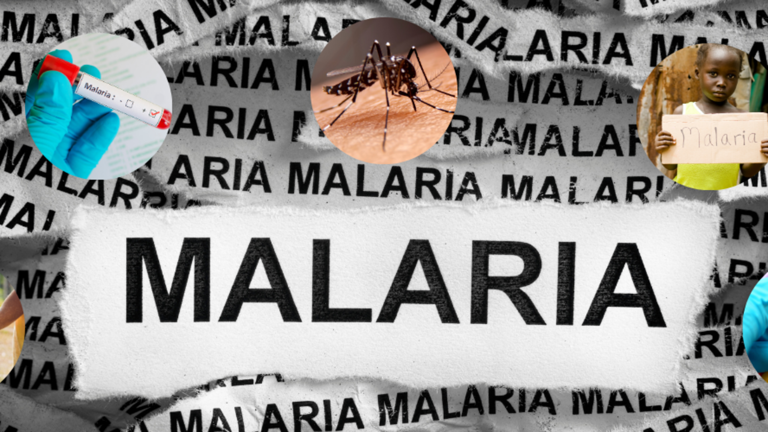“We must reimagine a world free of malaria—where no mother dies giving life and no child loses life to a mosquito bite.” — Dr. Matshidiso Moeti, WHO Regional Director for Africa
Every April 25, the world pauses to observe World Malaria Day, a global moment of reflection and renewed action. This year, under the theme “Malaria Ends with Us: Reinvest, Reimagine, Reignite”, the message is clear: ending malaria isn’t just a medical mission, it’s a grassroots revolution. And at the heart of that revolution must be women.
The Feminine Frontline: Why Women Matter in the Malaria Fight
Malaria is more than a tropical disease, it’s a daily emergency for millions of girls and women, particularly in sub-Saharan Africa. According to the World Health Organization (WHO), in 2023, there were:
- 263 million malaria cases reported globally
- 597,000 malaria-related deaths, with 246 million cases, and 95% of the deaths occurring in the WHO African Region
- 75% of malaria deaths in Africa occurred among children under five, many of them girls
- Pregnant women and adolescent girls in countries like Nigeria, the Democratic Republic of Congo, Mozambique, Uganda, Ghana, Burkina Faso, and Mali continue to suffer disproportionately due to their increased vulnerability to malaria complications
Beyond Africa, countries in Southeast Asia (India, Myanmar), Latin America (Brazil, Venezuela), and parts of the Western Pacific (Papua New Guinea, Solomon Islands) also report endemic transmission, though women and girls in remote communities remain dangerously underserved.
History of World Malaria Day
World Malaria Day emerged from Africa Malaria Day, observed since 2001. Recognizing the global burden of the disease, the World Health Assembly in 2007 adopted April 25 as World Malaria Day, and in 2008, the day was officially marked for the first time worldwide. It symbolizes the world’s commitment to controlling and eventually eliminating malaria, with growing attention to gender equity in health responses.
The Significance: A Global Wake-Up Call for Gender Health Equity
Malaria is a curable and preventable disease, but its continued grip on low- and middle-income nations reveals glaring gender, health, and socio-economic inequities. Women, especially those who are pregnant, are at a threefold increased risk of severe disease, miscarriage, stillbirth, and even death when infected.
Additionally, malaria contributes to:
- Disrupted education for girls who miss school during illness or while caring for sick siblings
- Loss of income for women in informal sectors who cannot work when sick or when managing household care
- Poor maternal health outcomes, particularly in rural and underserved areas
- Increased vulnerability to malnutrition, anemia, and HIV due to compounding health risks
Yet women are rarely given equal space in decision-making platforms on health policy, funding, and malaria response strategies.
The Challenges: What’s Holding Women Back in the Malaria Fight?
- Limited access to preventive tools: Many women and girls still lack treated mosquito nets and basic preventive education
- Healthcare gaps: In rural areas, clinics are under-resourced and too far to reach, especially for pregnant women
- Lack of women in leadership: Health ministries, NGOs, and development boards often exclude female voices in planning malaria programs
- Poverty and climate change: These worsen living conditions, creating breeding grounds for mosquitoes in communities already struggling to meet basic needs
A Call to Action from Amazons Watch Magazine
At Amazons Watch Magazine, we are rallying every leader, every mother, and every girl to declare: Malaria Ends With Us.
We call on:
National governments and ministries of health to prioritize gender-inclusive malaria programs and support female health workers in rural communities.
Development partners and donors to increase investments that equip women with knowledge, tools, and power to lead malaria elimination campaigns.
Women across Africa and the world to raising their voices, sharing their stories, and demanding their right to safe, equitable health services.
Youth and school systems to integrate malaria awareness into education for girls and boys, because the next generation must know how to protect and prevent.
Way Forward: From Awareness to Action
To end malaria for good, we must:
- Elevate women into leadership roles within malaria elimination strategies
- Support female community health volunteers with training and fair pay
- Strengthen antenatal care services and ensure all pregnant women receive malaria prevention treatment
- Invest in research that centers gender-specific health risks and responses
- Promote cross-border collaboration to target regional outbreaks and improve community-level access
Ending malaria is not just about mosquito control—it’s about empowering women and uplifting communities.
Conclusion: Her Fight, Our Future
Malaria continues to steal futures, especially from the girls and women of our most vulnerable communities. But these same women, when empowered, are our greatest allies in the battle. They are health workers, caregivers, teachers, and advocates.
This World Malaria Day 2025, let us move from sympathy to strategy, from awareness to action, and from passive observation to purposeful leadership—with women at the helm.
Because when she rises, malaria falls.





Comments are closed.